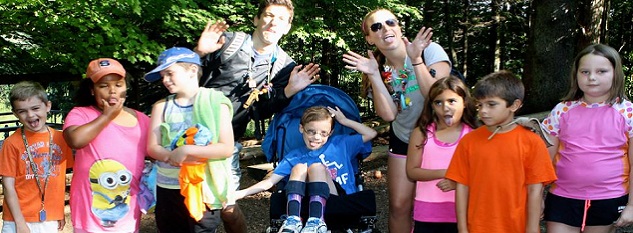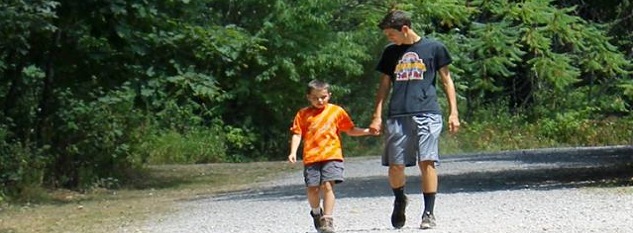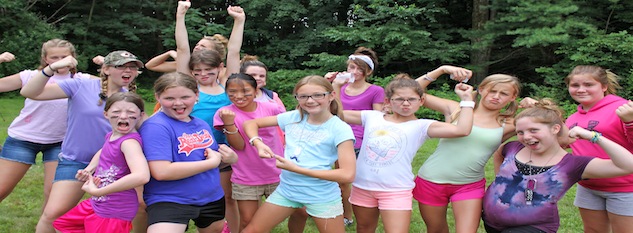Talooli Integration Program
At Camp Talooli we believe that every child can benefit from what the camp experience has to offer. Since 1988 Camp Talooli has worked to find ways to integrate children with special needs into the traditional Talooli summer camp community. All children are part of a typical summer camp group and participate in all activities. We have been able to make accommodations for children with a broad range of needs. Campers with learning disabilities, ADHD, autism, physical disabilities etc. have been contributing members of the Camp Talooli community each summer since the programs began.
Contact with parents:
Before a child with special needs comes to camp, it is essential that we are able to communicate with the parent or caregiver to learn more about their child. In order to best serve a child, it is important for us to gather information about his/her needs, likes and dislikes, communication methods, and what types of supports are most helpful. This connection begins with the parent reaching out to us through email, phone, or attending one of our open houses to meet with the Camp Director. It is often helpful to arrage a time to meet at Camp with the Camp Director so that all parties (child, parents, and camp staff) can get to know each other, become familiar with the camp environment and make a plan for success prior to their week as a camper. A copy of the child’s current Individualized Education Plan (IEP) is necessary for enrollment.
Strategies for support:
In addition to the information gathering phase discussed above, the camp staff has developed a number of other strategies which assist them in the support and inclusion of children with disabilities. Some strategies are:
- Communication - when appropriate, we can utilize methods such as a daily picture schedule, so that campers understand and can anticipate the order of their activities.
- Providing choices - in situations where certain activities are not a good fit for the individual, or when they need some control over their schedule, counselors can provide additional choices or options within daily camp routines and activities
- Camp-wide positive behavior supports - all camp staff are trained in the theory of positive behavior supports and utilize strategies that include verbal and tangible reinforcement. This encourages all campers to follow camp rules and make good choices for their behavior.
- Matching campers with counselors - significant attention is paid to creating a "good match" between counselors and campers. We consider the needs of campers, skills and experience of staff members, and and the personailty of both
- Support for counselors - leadership staff provide daily support and consultation to counselors who have a child with disabilities in their cabin/group. Types of support include:
- pre-camp training in disability characteristics and strategies (for all counselors and camp staff)
- sharing essential information and strategies between counselors and program staff
- providing an extra counselor for support, when needed
- teaming counselors together, one of whom may know the child from a previous year, may have supported children with disabilities in the past, or just may feel more comfortable doing so


